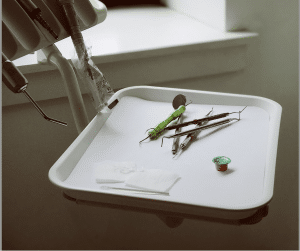 I’m a bestselling wellness expert – so I prepared this quick guide with tips for how to handle dental emergencies.
I’m a bestselling wellness expert – so I prepared this quick guide with tips for how to handle dental emergencies.
Dental health is a crucial aspect of overall well-being, yet it’s often overlooked until an emergency strikes. Surprisingly, dental emergencies are more common than one might think, affecting people of all ages, often at the most inconvenient times.
These emergencies range from severe toothaches and knocked-out teeth to abscesses and lost fillings, each requiring immediate attention to prevent further damage or long-term consequences.
In this helpful guide, you’ll learn how to identify, manage, and prevent the most common dental emergencies, ensuring that you can act swiftly and effectively when the need arises.
What Is A Dental Emergency?
Before exploring dentistry solutions from providers like Family Dental Health Center, you should understand what dental emergency is about. Basically, it’s any situation related to the teeth and supporting tissues that are of high importance to be treated by the relevant professional.
Emergencies demand prompt intervention to alleviate intense discomfort, halt bleeding, or preserve a tooth in jeopardy. However, knowing the difference between an issue that can wait for a regular dental appointment and one that requires immediate care can mean the difference between saving and losing a tooth.
Not every dental issue should have you rushing to the dentist right away. A dental emergency often presents itself through intense discomfort, significant bleeding, or injury. At the same time, a non-emergency can include problems like a mild toothache, a small chip in a tooth, or minor sensitivity.
General advice for handling dental emergencies includes staying calm, assessing the situation carefully, and taking immediate action as needed, such as applying pressure to stop bleeding or cleaning a knocked-out tooth.
Common Dental Emergencies And Immediate Actions
Dental emergencies can strike at any time, often without warning, and require prompt action to prevent lasting damage or severe pain. Here are some common dental emergencies and the immediate steps to handle them:
Knocked-Out Tooth
In the event of a knocked-out tooth, it’s imperative to act swiftly and carefully to enhance the chances of saving the tooth. Carefully pick up the tooth by the crown (the part that is normally visible in your mouth), being careful to avoid touching the root to prevent damage to the tooth’s delicate tissues.
Gently rinse the tooth with water to clean it without scrubbing, which could harm these tissues essential for successful reimplantation. Attempt to reinsert the tooth gently back into its socket, holding it in place if possible.
If you cannot reinsert it, place the tooth in a small container of milk or use a dental preservation product designed for this purpose. The success of reimplanting the tooth greatly depends on the promptness of care; therefore, it is critical to see a dentist within 30 minutes.
Severe Toothache
Severe toothache can be debilitating and signals that something is wrong. Causes can range from infection to gum disease or decay. To manage pain temporarily, follow these steps:
- Use warm water to rinse and clean your mouth.
- Remove any food caught between your teeth by using dental floss gently.
- If swelling is present, apply a cold compress to the outside of your mouth or cheek.
It’s important not to apply pain-relief medications directly onto the gums surrounding a sore tooth. This practice can cause gum tissue damage. Instead, if you must take oral pain relief, swallow the painkillers according to the instructions on the packaging. Direct contact with gums can lead to chemical burns or irritation, exacerbating the problem rather than providing relief.
Seeing a dentist as soon as possible is also crucial to address the underlying cause and ensure that temporary measures do not delay necessary treatment.
Cracked or Broken Teeth
 If you experience a crack or break in a tooth, it’s essential to take immediate steps to minimize discomfort and prevent further damage. First, gently rinse your mouth with warm water to remove any debris and reduce the risk of infection.
If you experience a crack or break in a tooth, it’s essential to take immediate steps to minimize discomfort and prevent further damage. First, gently rinse your mouth with warm water to remove any debris and reduce the risk of infection.
Applying a cold compress to your face can help reduce swelling and alleviate pain. If you find a fragment of the tooth, carefully preserve it in a clean container and bring it with you to the dentist.
To avoid exacerbating the injury, refrain from chewing on the affected side of your mouth. It is imperative to consult a dentist as soon as possible. A dental professional can evaluate the extent of the damage and recommend the most appropriate course of treatment, which may include repair or, in some cases, more comprehensive interventions.
Lost Fillings or Crowns
If you lose a filling, you can temporarily protect the tooth by sticking a piece of sugarless gum into the cavity or using over-the-counter dental cement. For a lost crown, try to reattach it to the tooth with dental cement, toothpaste, or denture adhesive as a temporary measure.
It’s important to understand that these solutions are only temporary and are not substitutes for professional dental care. Failing to see a dentist promptly can lead to further damage to the tooth or an infection, which could complicate the situation. Ensure you visit a dentist as soon as you can to have the filling or crown properly repaired or replaced.
Abscesses
Dental abscesses are serious infections that occur around the root of a tooth or in the space between the teeth and gums, potentially leading to significant health complications if left untreated. Symptoms include severe pain, swelling, redness in the gums, and a bad taste in your mouth.
While rinsing with a mild saltwater solution several times a day may help to ease the pain temporarily and can assist in drawing the pus toward the surface, it’s important to understand that this does not treat the infection. However, dental or medical intervention is necessary to properly address the abscess.
Antibiotics may be required to fight the infection, and in some cases, drainage of the abscess might be needed. Therefore, seeing a dentist as soon as possible is crucial for treatment and to prevent the spread of infection.
Soft Tissue Injuries
Soft tissue injuries affecting areas such as the gums, cheeks, lips, and tongue often lead to bleeding and necessitate prompt attention. To manage this, gently cleanse your mouth using a solution of salt water and halt the bleeding by pressing on the affected area with gauze or a tea bag.
If bleeding doesn’t stop after 15-20 minutes of direct pressure, or if the injury involves a large laceration or is particularly severe, seek professional medical attention immediately. In such cases, visiting an emergency room or urgent care is advisable, especially if dental care is not immediately available. This step is crucial to prevent further complications and to ensure proper healing.
Prolonged Soreness or Ulcers
Mouth ulcers or sores that don’t heal within two weeks could signify an underlying health condition, including oral cancer. Early detection and treatment are crucial, so seeing a dentist for a thorough examination is advised if you have persistent or unusual sores.
Handling these dental emergencies quickly and efficiently can prevent the situation from worsening. Always remember that maintaining regular dental check-ups and good oral hygiene practices can help prevent many emergencies. However, when the unexpected happens, knowing what to do can make a significant difference in your dental health and overall well-being.
Preventing Dental Emergencies
While it’s true that accidents happen, many dental emergencies and oral health problems can be prevented with a bit of foresight and a few simple precautions. The key to avoiding unexpected trips to the dentist lies in adopting habits that protect your teeth and gums from injury and decay.
Here are practical steps you can take to minimize your risk of facing a dental emergency
Wear Protective Gear During Sports
Engaging in sports, especially contact sports, significantly increases the risk of dental injuries. Wearing a mouthguard is a simple and effective way to protect your teeth, lips, gums, and jaw from impact injuries. Today’s mouthguards are comfortable, lightweight, and can even be custom-made to fit your mouth perfectly, offering the best protection and comfort.
Avoid Hard Foods And Objects
Teeth are strong, but they’re not indestructible. Chewing on hard objects such as ice, hard candy, popcorn kernels, and even pens can lead to chipped or broken teeth. Try to avoid these items when possible, and opt for healthier, less risky snacks to satisfy your cravings.
Practice Good Oral Hygiene
Maintaining good oral hygiene is your first line of defense against emergencies that stem from decay and infection. Brushing twice a day with fluoride toothpaste, flossing daily, and using an antiseptic mouthwash can help keep your teeth strong and your gums healthy. Regular check-ups and cleanings at the dentist are also crucial for catching potential problems before they turn into emergencies.
Use The Right Tools
It’s tempting to use your teeth as tools to open bottles or packages, but this can lead to chips, fractures, or even knocked-out teeth. Always reach for scissors or a bottle opener instead. Respecting your teeth’s limits can prevent many emergencies.
Don’t Ignore Minor Dental Issues
Sometimes, small dental issues can quickly escalate into emergencies if left untreated. Sensitivity, minor toothaches, and slight discomfort around the gums can be early signs of underlying problems. Addressing these symptoms early with a visit to the dentist can prevent more severe issues down the line.
Keep Regular Dental Appointments
Routine dental check-ups are vital for preventing emergencies. These visits allow your dentist to monitor the health of your teeth and gums, perform professional cleanings, and identify and treat problems early. Your dentist can also provide advice on how to care for your teeth and tailor preventive strategies to your specific needs.
Educate Yourself And Your Family
Understanding the causes and preventions of dental emergencies can empower you and your family to make safer choices. Educate children on the importance of wearing mouthguards during sports and the risks of using teeth as tools. Knowledge is a powerful tool in preventing dental injuries.
By incorporating these preventive measures into your daily routine, you can significantly reduce your risk of experiencing dental emergencies. Remember, taking care of your teeth is an investment in your overall health and well-being.
The Cost of Neglecting Dental Emergencies
Ignoring dental emergencies can have severe implications, not just for your oral health but for your overall well-being and financial situation. Here are some key points to consider:
- Increased Risk of Infection: Dental emergencies, especially those involving abscesses or deep decay, can lead to infections that spread beyond the mouth to other parts of the body. This can result in systemic infections that are much harder and more expensive to treat.
- Higher Treatment Costs: What starts as a simple cavity or a minor gum infection can escalate into a situation requiring root canals, gum surgery, or even tooth extraction if not addressed promptly. These treatments are not only more invasive but also significantly more costly than preventative care or early treatment.
- Loss of Teeth: Neglecting dental emergencies increases the risk of losing one or more teeth. Tooth loss can affect your ability to eat and speak properly and may lead to expensive dental procedures like implants or dentures to restore function and aesthetics.
- Long-Term Health Complications: Studies have linked poor oral health to various health issues, including heart disease, diabetes, and stroke. Ignoring dental emergencies contributes to the deterioration of oral health, potentially exacerbating these conditions or increasing the risk of developing them.
By understanding these consequences, it becomes clear that promptly addressing dental emergencies is not only crucial for maintaining oral health but also for avoiding unnecessary pain, complex medical treatments, and financial burdens down the line.
When To See A Dentist
Seek immediate dental care if you experience severe pain, uncontrolled bleeding, signs of infection (such as swelling, pus, fever, or a foul taste), or if you have suffered trauma to your face or mouth. Prompt action is essential in these situations to prevent further damage or complications. Dentists can offer guidance over the phone and determine if you need urgent care, helping to address the emergency effectively.
Conclusion
Dental emergencies can be distressing, but knowing how to respond can significantly impact your health and recovery. By understanding common dental emergencies, taking immediate action, and seeking professional care promptly, you can minimize the damage and keep your smile healthy. Remember, regular preventive care and maintaining good dental hygiene are your best defenses against emergencies.
Get Tools To Stay Calm Under Pressure
Explore my groundbreaking online course called The Anxiety Cure.
Think happier. Think calmer.
Think about subscribing for free weekly tools here.
No SPAM, ever! Read the Privacy Policy for more information.
One last step!
Please go to your inbox and click the confirmation link we just emailed you so you can start to get your free weekly NotSalmon Happiness Tools! Plus, you’ll immediately receive a chunklette of Karen’s bestselling Bounce Back Book!



 I’m a bestselling wellness expert – so I prepared this quick guide with tips for how to handle dental emergencies.
I’m a bestselling wellness expert – so I prepared this quick guide with tips for how to handle dental emergencies. If you experience a crack or break in a tooth, it’s essential to take immediate steps to minimize discomfort and prevent further damage. First, gently rinse your mouth with warm water to remove any debris and reduce the risk of infection.
If you experience a crack or break in a tooth, it’s essential to take immediate steps to minimize discomfort and prevent further damage. First, gently rinse your mouth with warm water to remove any debris and reduce the risk of infection.